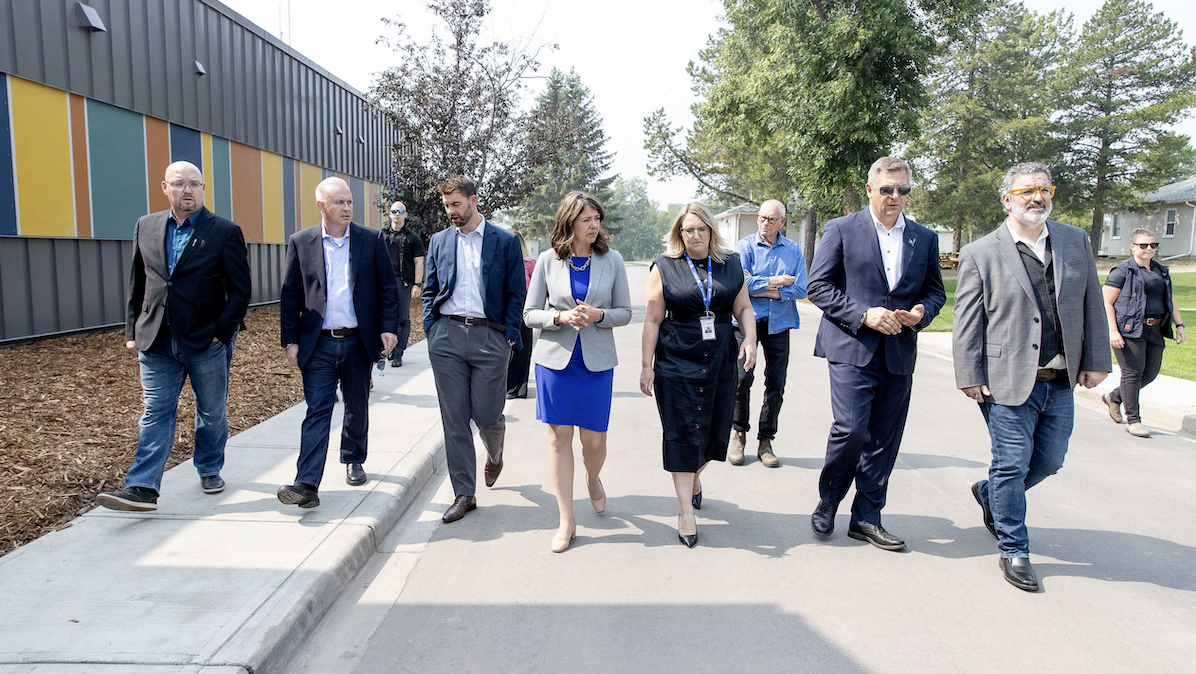One of the faculty members named on the Recovery Training Institute of Alberta’s website has ties to a controversial B.C. addiction recovery society that owns a tracking app that must now be used by everyone being treated in all Alberta detox and residential recovery facilities.
RTIA faculty member Jessica Cooksey’s short biography on the website of the “provincial training hub” for recovery workers provides few details about what is described as her 25 years “in the non-profit sector focusing on addiction and mental health recovery for folks, families, and the community.”
But a simple Google search reveals Cooksey’s connection to the New Westminster-based Last Door Recovery Society, where she is listed on the organization’s website as its director of operations.
The society was revealed Wednesday by researcher Euan Thomson on his Drug Data Decoded blog to be the owner of the “My Recovery Plan” app that is now mandatory for people seeking treatment in all Alberta detox and residential recovery facilities, “raising serious privacy, consent and transparency red flags.”
A recent controversy involving the society has centred around assault allegations made against a former employee in 2023, leading to complaints that the society and others in the unregulated private-sector drug recovery industry in British Columbia, which has been compared to the “Wild West” by critics, has been putting workers’ safety at risk for years.
In February 2023, Press Progress published a report accusing B.C. recovery industry groups including the Last Door Recovery Society that had attacked “safe supply” initiatives of having “numerous ties with conservative political actors.”
A January 2023 press release by the confusingly named B.C. Liberal Party, which not long before had led a conservative government in the province, seems to have been the source a Global News story in February that year claiming publicly funded safe-supply drugs were being resold on the street. The story quoted Cooksey as the Last Door Recovery Society’s spokesperson.
Getting back to the “My Recovery Plan” app, Thomson learned that its acquisition for addiction recovery support was the subject of a sole-source contract in 2021 between Alberta’s Ministry of Mental Health and Addiction and the Last Door Recovery Society. The intention at the time was for the app to be used by Alberta Health Services.
Thomson made the discovery after going through a ministry list of sole-source contracts. His report said the AHS sole-source contract list has not been updated since 2022.
“In December 2023, Drug Data Decoded flagged My Recovery Plan as a key channel through which the Alberta government is privatizing health information of people seeking substance use support,” wrote Thomson, who is a PhD microbiologist. “Responding to a request for data on reasons for patient discharge, Alberta’s Ministry of Health stated that ‘the Government of Alberta does not have access to the information held in My Recovery Plan as it is a proprietary product of the Last Door Recovery Society.’”
In other words, Thomson concluded, “My Recovery Plan’s private ownership allows the government to stonewall requests for data.”
Thomson said reports obtained through freedom of information requests also show use of the app violates the privacy of people accessing recovery services in Alberta and breaks all six of AHS’s conditions for informed consent.
As reported in this space on Tuesday, a provincial press release describes the RTIA as “a provincial training hub for those employed within a recovery community or other treatment centre in Alberta.”
However, there are many unanswered questions about its legal structure, accreditation, operation, and relationships with the government and ROSC Solutions Group Inc., the private company hired to operate the “Lakeview Recovery Community” facility west of Edmonton where the RTIA will be based.
The RTIA website includes a page devoted to its faculty, listing 10 people, none of whom appear to be residents of Alberta and half of whom have connections to the B.C. private-sector addiction recovery industry.
Likewise, the director of the RTIA, Bill Caldwell, the president of ROSC Solutions, Carson McPherson, and Alberta premier Danielle Smith’s chief of staff, Marshall Smith, were all also important figures in the B.C. recovery industry in the same time frame.
Since the Smith Government clearly intends to spend many millions of dollars on a heavily privatized approach to addiction treatment using the “Alberta Recovery Model,” more transparency about the many connections among the new players coming to Alberta is obviously required for Alberta taxpayers.



